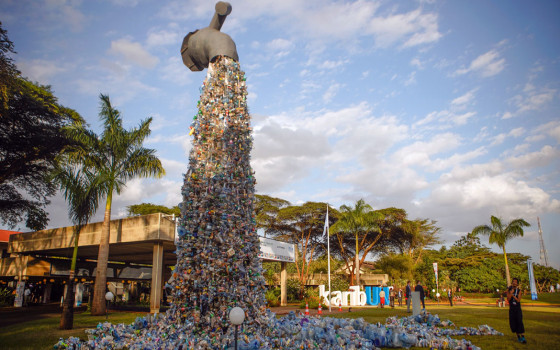
Intergovernmental negotiations on a historic agreement on plastic pollution begin

- Europe and Arabs
- Tuesday , 26 November 2024 10:31 AM GMT
Busan - South Korea: Europe and Arabs
The fifth session of the Intergovernmental Negotiating Committee kicked off in Busan, Republic of Korea (South Korea) yesterday, Monday, with the aim of reaching a legally binding agreement on plastic pollution, led by the United Nations Environment Program. According to what was stated in the United Nations daily news bulletin, a copy of which we received this morning, Tuesday
The meeting comes after two years of intergovernmental negotiations to develop a legally binding global instrument covering the terrestrial and marine environments, a fleeting moment in diplomatic circles, as concluding multilateral agreements may take decades.
In a video message, UN Secretary-General Antonio Guterres urged the assembled delegates to push for an agreement.
He added: "Our world is drowning in plastic pollution. Every year, we produce 460 million tons of plastic, much of which is quickly discarded. By 2050, there may be more plastic than fish in the ocean. Microplastics in our bloodstreams create health problems that we are only beginning to understand." “Moment of truth”
For her part, the Executive Director of the United Nations Environment Programme, Inger Andersen, expressed her hope for a potentially historic agreement, insisting that the “moment of truth” had arrived for action.
Andersen stressed that no one on this planet wants plastic to wash up on their shores or to have plastic particles circulating in their bodies, or their unborn children, adding that this is a sentiment shared by the G20 industrialized nations.
The UN official said: “Waste pickers and civil society groups are fully engaged. Companies are calling for global rules to guide this future; indigenous peoples are raising their voices; scientists are demanding science. The financial sector is starting to move internationally. There have also been clear signals that agreement is needed, including last week’s G20 declaration, which said that G20 leaders are determined to reach this agreement by the end of the year.”
A new chapter in history
More than 170 countries and over 600 watchdog organizations are taking part in a week of talks in the coastal city of Busan, where South Korean President Yoon Suk-yeol urged delegates to agree on a path to zero plastic pollution, for future generations.
“Humanity’s over-reliance on the convenience of plastic has led to a massive increase in plastic waste; the waste accumulating in our oceans and rivers is now endangering the lives of future generations,” Yoon said via video link. “I sincerely hope that all member states will come together next week – with a sense of responsibility towards future generations – to open a new chapter in history by finalizing an agreement on plastic pollution.”
Ambitious and fair deal
The fifth session of the Intergovernmental Negotiating Committee aims to develop a legally binding international instrument on plastic pollution, including marine pollution, and will take place from 25 November to 1 December 2024.
The session follows four previous rounds that began exactly 1,000 days ago in Uruguay. But “some of these plastics can take up to 1,000 years to decompose,” said the head of the UN Environment Programme.
“Even then, they break down into smaller particles that persist, spread and pollute, damaging ecosystem resilience, clogging urban sanitation and potentially harming human health and development,” Andersen added. “Plastic pollution also releases more greenhouse gases, pushing us closer to climate catastrophe. That’s why public and political pressure for action is at its highest.”
In his message to the gathering, the UN Secretary-General stressed the need for an “ambitious, credible and fair” agreement. He stressed that any agreement must address the life cycle of plastics, “addressing single-use and short-lived plastics, waste management and measures to phase out plastics and promote alternative materials.”
These measures would enable all countries to access technologies and improve land and marine environments, while ensuring that the most vulnerable communities that rely on collecting plastics, such as waste pickers, are not left behind.


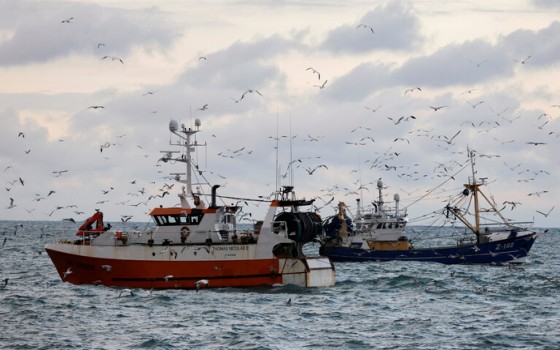

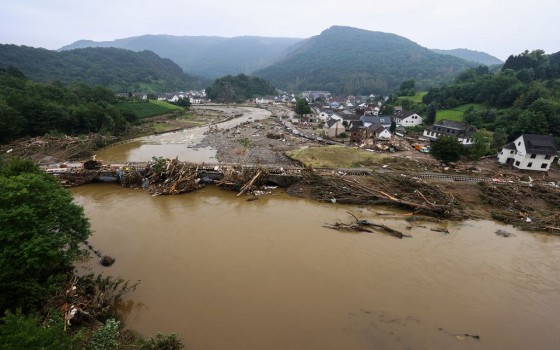
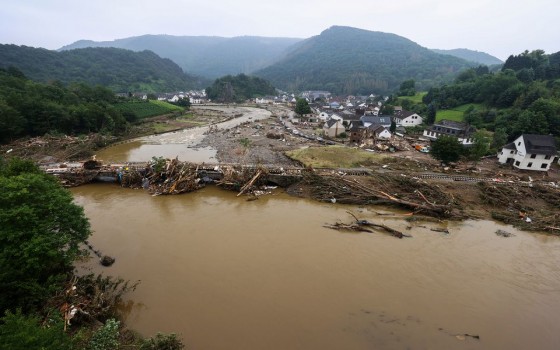


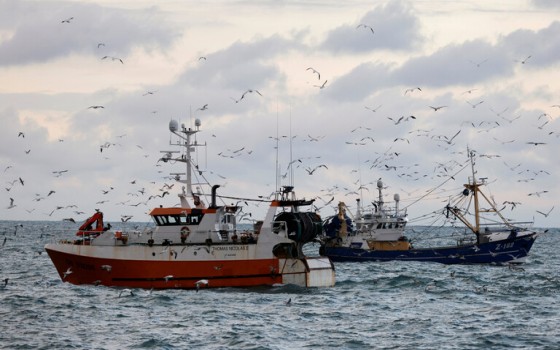



No Comments Found